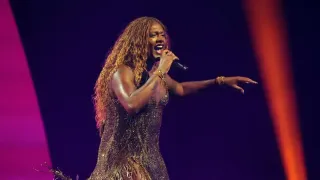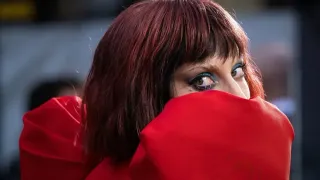
Nov 16
Big Brother Bares All: Naked Showers, Queer Gaze, and the Uncut Debate That’s Dividing Australia
READ TIME: 3 MIN.
Big Brother Australia has never shied away from controversy, but this season’s simmering debate over naked, live-streamed showers has splashed fresh water on old wounds. With 24/7 cameras rolling and housemates divided over whether to bare all, the show is once again forcing Australia—and its queer audience—to confront questions of vulnerability, voyeurism, and the politics of the body in a hyper-connected age .
This year, the producers have doubled down on the show’s original format, promising round-the-clock livestreams and a return to Dreamworld, the OG house that saw the first late-night shocks and giggles . But while live evictions and spontaneous alliances are par for the course, the real drama is playing out in the showers.
Enter Colin Ridley, a housemate who has become the unlikely spokesperson for Team Naked. “I’m endowed, so I got nothing to hide,” Colin quipped, sparking both admiration and anxiety among his fellow contestants . For Colin, dropping trou is an act of body positivity—his way of reclaiming space and refusing shame.
But not everyone is ready for their close-up. Some housemates have voiced real discomfort with the prospect of their bodies being broadcast, unfiltered, to an audience of millions. “It’s terrifying,” one contestant confessed, “knowing that every inch of you is out there forever” .
For LGBTQ+ viewers, the naked shower debate lands differently. Queer communities have long been at the vanguard of body positivity, challenging mainstream norms about who gets to be seen, desired, and celebrated. There’s power in visibility: for some, seeing unapologetic nudity—especially from bodies that don’t conform to heteronormative ideals—can feel radical, even healing .
But Big Brother’s history is complicated. The return of 24/7 live-streaming has dredged up painful memories, including the infamous “turkey slap” scandal of 2006, which saw the show condemned for crossing lines of consent and safety . Back then, the late-night spin-off Big Brother Uncut was axed after politicians and regulators slammed the program’s handling of adult content.
Host Mel Tracina insists that, this time, boundaries are clear: “We’re keeping it PG,” she told news.com.au, explaining that while livestreams are back, all content will be “moderated to make sure that everything broadcast is up to broadcast standards” . But with contestants themselves controlling how much they reveal, the real question is what kind of visibility the show is promoting—and who gets to decide.
There’s no denying the thrill of the unscripted, the unfiltered, the truly live. For some LGBTQ+ fans, the Big Brother showers are a rare space where bodies are not only visible but also diverse—queer, trans, fat, thin, tattooed, scarred, and everything in between. These moments can offer a fleeting sense of community, a reminder that no one body is “normal,” and that confidence comes in infinite forms .
But there’s also vulnerability. Consent is not just about saying yes to a shower, but about understanding the ripple effects of mass broadcast. For trans and non-binary housemates, the stakes are even higher: exposure can mean liberation, but it can also mean risk—of misgendering, of objectification, of online abuse .
Some fans are asking whether the show is truly offering a platform for authentic self-expression, or simply feeding an audience hungry for spectacle. “You don’t have to worry about getting a bad edit, or being the ‘season villain’,” Mel Tracina has argued, “because viewers can log in at any time and see what the are up to” . It’s a compelling argument—but one that doesn’t erase the power dynamics at play when bodies become content.
As Big Brother Australia descends once again into the nation’s living rooms, the debate over naked showers is about more than skin. It’s about who gets to be seen, and on whose terms. For the queer community, it’s a reminder that visibility is double-edged: it can be a celebration, but it can also be a spectacle.
And yet, there’s something undeniably queer—and undeniably radical—about the messiness of it all. At its best, the Big Brother shower is not just a site of exposure, but a collision of bodies, identities, and desires that defy easy categorization. It’s a reminder that shame is learned, and joy is contagious.
As the cameras keep rolling and the debate rages on, one thing is clear: the gaze may never be neutral, but the conversation it sparks is essential. Whether you’re Team Naked, Team Towel, or Team “Can We Please Talk About Something Else,” this is reality TV at its most revealing—and its most human.






